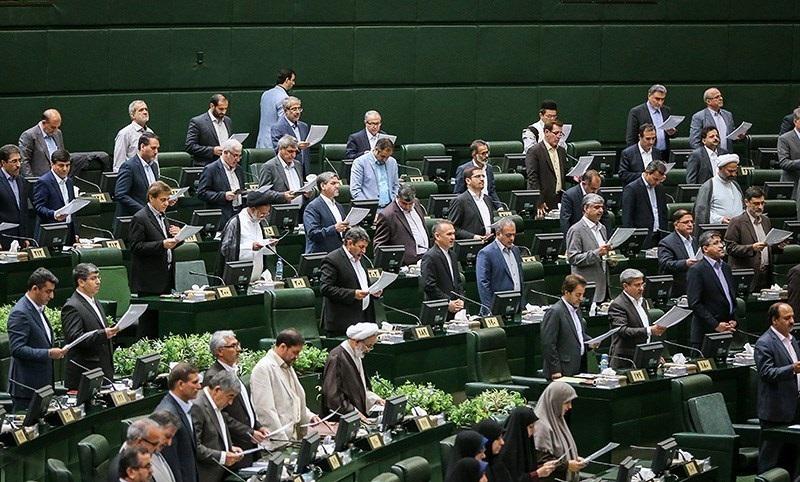Negotiations still continue between Iran and other western powers in an effort to revive the 2015 nuclear deal. The Iranian parliament has also showed the desire to return to the agreement, with lawmakers setting conditions to be able to restore the deal.
Al Jazeera reports that a majority of Iranian lawmakers have defined the conditions in order to return to the nuclear agreement as the talks in Vienna have reportedly reached the last stretch. In a 290-member parliament, 250 lawmakers called on President Ebrahim Raisi to abide by the conditions they have set in restoring the Joint Comprehensive Plan of Action or JCPOA.
The lawmakers said that Iran must set clear red lines in the negotiations, saying that the “cruel and terrorist” US government along with “weak and contemptible” countries such as France, Germany, and the UK, have shown that they are not bound by an agreement over the past years. The red lines the lawmakers refer to cited receiving a guarantee by the US and the “E3” that they will not abandon the nuclear deal again.
During Donald Trump’s presidency, the US withdrew from the deal in 2018 and instead imposed sanctions on Iran. Joe Biden is keen to return to the deal, but Iran has refused to directly engage with Washington throughout the negotiations. Both sides have since been engaging through the European countries that are part of the deal.
“The US regime and other countries party to the JCPOA must pledge that they won’t use the snapback mechanism,” said the legislators, referring to a clause in the agreement that would automatically reimpose UN sanctions on Iran if it breaches the deal.
Israel has opposed the nuclear deal, and Prime Minister Naftali Bennett criticized the ongoing negotiations in Vienna. Bennett said that while Iran may agree to a new nuclear deal with world powers, the agreement would be weaker than the original accords.
“We may see an agreement shortly,” said Bennett, but added that the deal now would be “shorter and weaker than the previous one.”
Tehran has insisted that its nuclear program was for peaceful purposes. Israel’s relations with Iran have come under strain especially as Iran blames Israel for the attacks on its Natanz nuclear facility.



 Trump Backs Nexstar–Tegna Merger Amid Shifting U.S. Media Landscape
Trump Backs Nexstar–Tegna Merger Amid Shifting U.S. Media Landscape  U.S.-India Trade Framework Signals Major Shift in Tariffs, Energy, and Supply Chains
U.S.-India Trade Framework Signals Major Shift in Tariffs, Energy, and Supply Chains  Norway Opens Corruption Probe Into Former PM and Nobel Committee Chair Thorbjoern Jagland Over Epstein Links
Norway Opens Corruption Probe Into Former PM and Nobel Committee Chair Thorbjoern Jagland Over Epstein Links  Iran–U.S. Nuclear Talks in Oman Face Major Hurdles Amid Rising Regional Tensions
Iran–U.S. Nuclear Talks in Oman Face Major Hurdles Amid Rising Regional Tensions  Missouri Judge Dismisses Lawsuit Challenging Starbucks’ Diversity and Inclusion Policies
Missouri Judge Dismisses Lawsuit Challenging Starbucks’ Diversity and Inclusion Policies  Trump Allegedly Sought Airport, Penn Station Renaming in Exchange for Hudson River Tunnel Funding
Trump Allegedly Sought Airport, Penn Station Renaming in Exchange for Hudson River Tunnel Funding  Trump Signs Executive Order Threatening 25% Tariffs on Countries Trading With Iran
Trump Signs Executive Order Threatening 25% Tariffs on Countries Trading With Iran  Pentagon Ends Military Education Programs With Harvard University
Pentagon Ends Military Education Programs With Harvard University  Netanyahu to Meet Trump in Washington as Iran Nuclear Talks Intensify
Netanyahu to Meet Trump in Washington as Iran Nuclear Talks Intensify  US Pushes Ukraine-Russia Peace Talks Before Summer Amid Escalating Attacks
US Pushes Ukraine-Russia Peace Talks Before Summer Amid Escalating Attacks  Jack Lang Resigns as Head of Arab World Institute Amid Epstein Controversy
Jack Lang Resigns as Head of Arab World Institute Amid Epstein Controversy  Trump Says “Very Good Talks” Underway on Russia-Ukraine War as Peace Efforts Continue
Trump Says “Very Good Talks” Underway on Russia-Ukraine War as Peace Efforts Continue  Trump Lifts 25% Tariff on Indian Goods in Strategic U.S.–India Trade and Energy Deal
Trump Lifts 25% Tariff on Indian Goods in Strategic U.S.–India Trade and Energy Deal  India–U.S. Interim Trade Pact Cuts Auto Tariffs but Leaves Tesla Out
India–U.S. Interim Trade Pact Cuts Auto Tariffs but Leaves Tesla Out  Japan Election 2026: Sanae Takaichi Poised for Landslide Win Despite Record Snowfall
Japan Election 2026: Sanae Takaichi Poised for Landslide Win Despite Record Snowfall  TrumpRx Website Launches to Offer Discounted Prescription Drugs for Cash-Paying Americans
TrumpRx Website Launches to Offer Discounted Prescription Drugs for Cash-Paying Americans 































